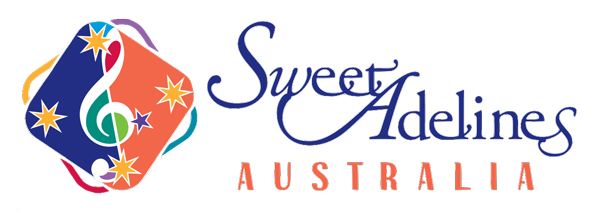Two things however are required:
- You do need to be able to sing in tune
- You need to be able to "hold your part" while others around you are singing something different
- Superb, unmatched vocal education and training, including visiting national and international coaches
- Exciting opportunities to entertain within your community and compete with other talented barbershop singers
- Fun social activities and performance opportunities
- Programs designed to inspire you to reach new levels of success in a supportive community of friends
- A free subscription to the The Pitch Pipe, the official magazine of Sweet Adelines International, plus other various newsletters and publications.
- Leads - mostly sing the melody, but occasionally sing harmony. If you have sung Soprano or Alto in other choirs, your voice may fall into the lead range.
- Tenors - sing a harmony part that is above the lead part, similar to a descant part. This part has great high notes that adds a special ping to the chord.
- Basses - sing a harmony part that is the lowest part in the chord. Often this part drives the rhythm of the song, and may get to sing passages of melody when it falls into the lower range.
- Baritones - sing a harmony part in a similar range to the leads. We often find baritone singers have sung Alto in other choirs. This part adds character to the chord and has fun swipes.
Once you are a member, you will be required to join Sweet Adelines, which is fee based. The costs of joining Sweet Adelines International are favorable in comparison with other hobbies, such as sporting activities.
There is a one off joining fee of $280. This amount pays your Regional and International Sweet Adelines annual memberships, which your monthly dues will then cover in escrow on your behalf for the following year. The dues for chorus membership are $55 per month, which covers:
- Costume and makeup
- Music - copyright, learning tracks and charts, copying fees
- Administration - Kitchen supplies, website hosting, domain name renewal, Groupanizer renewal, stationary, gifts, audit costs
- Capital purchases - risers, microphone, speakers
- Director’s expenses - SAI and SAA membership, convention expenses, education expenses
- Convention - SAI registration to compete, room hire, rehearsal space, riser hire
- Marketing and Promotion - advertising, copying costs
- Education and coaching - international and regional coaches (including accommodation, flights, coaching fees)
- Licences and Memberships - ANCA, APRA, Incorporation renewal, Public Liability Insurance, SAI chapter renewal
- SAI and SAA membership
You may choose to purchase your own make-up, or use the Chorus kit. Other costs that may be incurred include travel and competition registration fees when we compete, which is no more than once a year and a small coaching fee per coach visit.
At your first rehearsal, you will be voice tested. This is a quick check done by our Musical Director, so we understand your vocal qualities and can give you a temporary placement on the risers next to a member that sings your voice part.
After your second rehearsal, our Management Team will arrange the printed music and learning tracks for the audition song/s. We have useful tips and information that will assist you to learn the songs most efficiently. Depending on what the Chorus is working on, we may or may not sing these songs during our regular rehearsals so practicing them in your own time is essential.
During the next few weeks, you will be given opportunities to practice in a small group before, during and/or after general rehearsal time. Your section leader and Director will guide you as to when you are ready to audition, but typically, it is within two months of commencement.
Daunting? Yes, it can be, but every member on our risers has gone through this process and survived.
It is a challenge well worth taking.
We look forward to you joining us on the risers.




